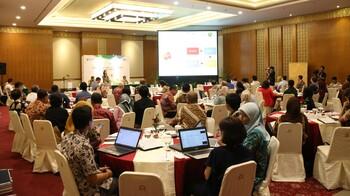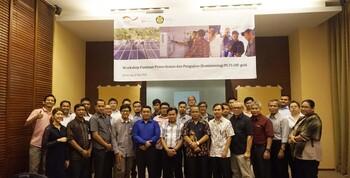Context
In 2017, more than 20 million Indonesians (8 per cent of the population) predominantly living in remote rural areas, lack access to electricity and have been left behind in the country’s fast-paced development. In order achieve ‘near-universal’ access to electricity by 2020, the Government of Indonesia has prioritised energy access. In doing so, significant progress has been made over the past 10 years. Up to now, more than 600 village-owned micro-grids have been installed, that are capable of running independently and powered 100 per cent from locally available renewable energy (RE) sources. Indonesia has become a frontrunner in the global effort of ensuring access to affordable, reliable and modern energy (UN Social Development Goal 7) through RE powered micro-grids and has thereby proven that electricity access and CO2 reduction can go hand in hand.
Many challenges however still lie ahead. Electrification in Indonesia is yet to become a synergised effort among the various ministries and public actors active in the field. Furthermore, micro-grids, driven by solar energy or micro-hydro power, are prone to technical failures if not properly maintained. This requires an effective performance monitoring system as well as trained service technicians and repair shops to be readily available at local levels if a system fails. To supply this labour demand, training providers and training facilities need to be in place to educate and qualify young electricians wanting to specialise in renewable energy. In order to raise the overall sustainability and durability of government-funded RE off-grid systems over their lifetime, the quality of these installations must be improved to meet international norms and quality standards. Moreover, negative environmental impacts (e.g. from battery disposal) needs to be avoided and gender equality among operators has to be ensured.
Furthermore, human and institutional capacities within the public and private sector, as well as at national and regional level need to be developed to make electrification through renewable energy in Indonesia more sustainable.
Objective
Knowledge on off-grid electrification using renewable energy is institutionalised in Indonesia.

